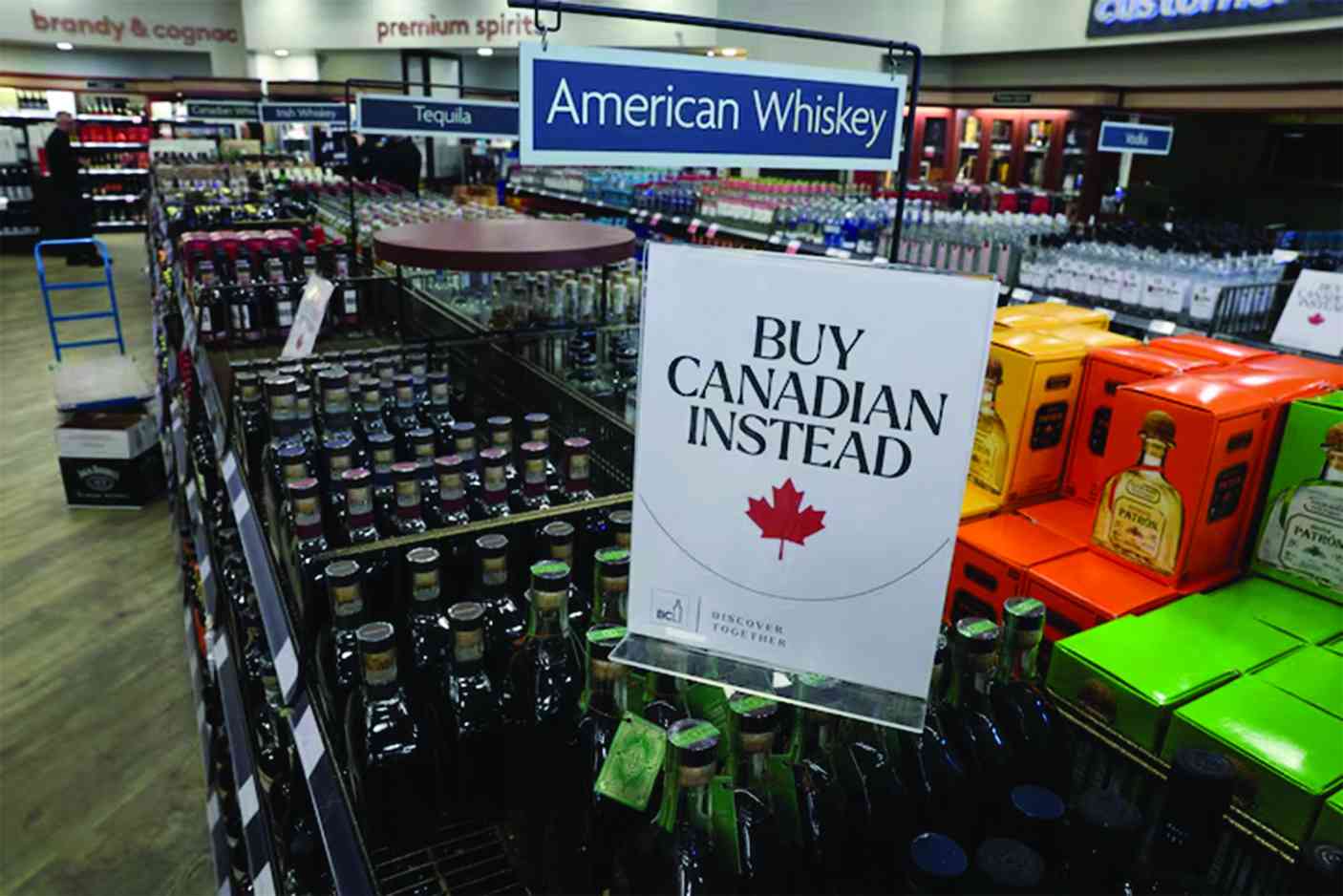
UNITED States President Donald Trump’s imposition of 25% tariffs on all Canadian exports to the US cannot be justified by the false claim that illegal immigrants and large amounts of the synthetic opioid drug fentanyl are flooding in across the Canadian border.
The accusation about fentanyl is preposterous, since the total amount intercepted at the Canadian-US border in the past year is far less than 1% of the amount stopped at the Mexican-US border. Tariffs on Mexico might make sense as an incentive to stop the flow, perhaps, but why on Canada?
As for the alleged border-crossers, why would any migrant, who is already safely in Canada (generous to asylum-seekers, gun control, universal health-care, few crazies and pretty relaxed about race) want to sneak into the US (deportations, medical bankruptcies, guns everywhere, racism rampant and “Christian nationalists” in charge)?
There is no flow of illegal immigrants entering the US from Canada. It is a fantasy. Unless Trump is simply obsessed with symmetry (“What I do on the southern border I must also do on the northern border”) he must have some other motive for including Canada in the top three targets on his tariff hit list (Canada, Mexico, China).
Do not get hung up on the fact that Trump is using the fentanyl problem in order to have a legal pretext for “emergency” action that would normally require a congressional decision.
Yes, he is using it for that purpose too, but it does not explain why he has chosen Canada as a high-priority target.
Neither does the fact that Canada sells a lot more to the US than it buys from it. Including sales of oil, gas and electricity, Canada sells US$41 billion more to the US than it buys from it — but if you exclude fossil fuels and hydropower, which involve special bilateral deals, the trade balance is US$68 billion in America’s favour.
However weird and confused it may seem, therefore, Trump’s frequently repeated intention to annex Canada should be taken seriously.
- Junior Sables confident ahead of U20s Canada Conference
- Eva heads for Miss Heritage Global
- Health Talk: National Health Insurance can foster better solutions
- Letter to my people: There is trouble in the cockpit
Keep Reading
So far, he continues to say that he will achieve this exclusively by “economic pressure”, and Canadians will cling to this assurance — but they should not bet the farm on it.
The reason it is hard to take the “American threat” seriously is because countries just do not behave like this anymore. (Well, okay, Russia does, but it is the only other country to act on such an ambition, or even to express such an intention, for a very long time.) Nevertheless, Trump’s intention is probably real. Just listen to how he speaks.
On February 2, he wrote on Trump Social that Canada “should become our Cherished 51st State. Much lower taxes, and far better military protection for the people of Canada — and no tariffs!”
“We don’t need anything they have. We have unlimited energy, should make our own cars and have more lumber than we can ever use. Without this massive subsidy, Canada ceases to exist as a viable country.”
It is a waste of time to rebut Trump’s lies and distortions line by line — there is one in almost every sentence — but three things are worth noting. First, Canada’s geography means that the only country that can pose a direct military threat to it is the US.
Second, there is no US subsidy of any kind to the Canadian economy. And third, he really means it.
I am certainly not suggesting that Trump has a plan for invading Canada, or even (as he claims) a step-by-step strategy for squeezing Canada economically until it gives up and surrenders its sovereignty. Neither do I think that he will necessarily succeed in his ambition. But I am saying that he poses an existential threat to the Canadian confederation.
Why do people have such difficulty in believing this? Only 23 years ago, another American president, George W Bush, actually invaded the wrong country. (Iraq had no weapons of mass destruction, and no connection with the 9/11 attacks.)
Trump is even more ignorant than Bush, and certainly more impulsive. He has already begun the economic pressure on Canada, and Canada has already responded with like-for-like tariffs. That may be the end of it, for Trump is opening trade wars on many other fronts as well — but when somebody says they are going to hurt you, it is wise to take precautions.
Not one Canadian in 10 would freely choose to become part of the angry and divided society to the south, but they may have to endure a long and miserable economic siege to avoid that fate.
Everybody else will sympathise, but nobody else will or even can help much as Trump batters at the door.
And at some point Canadians may even have to “blow the bridges”, at least metaphorically.
Dyer is a London-based independent journalist. His new book is titled Intervention Earth: Life-Saving Ideas from the World’s Climate Engineers. His previous book, The Shortest History of War, is also still available.











